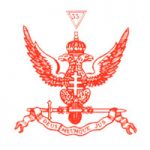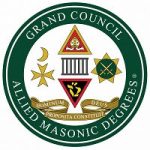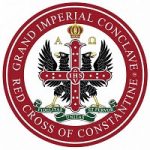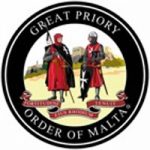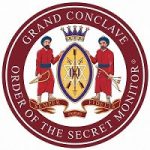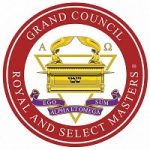ABOUT
WHAT IS FREEMASONRY?
An international and widely recognised fraternity, Freemasonry provides its members with the opportunity to embark on an amazing lifelong journey of learning and self-discovery and of deepening personal moral strength and compassion. Most Masons find the experience both challenging and rewarding and above all, enormously enjoyable.
Freemasonry means different things to each of those who join. For some, it’s about making new friends and acquaintances. For others it’s about being able to help deserving causes – making a contribution to family and society. But for most, it is an enjoyable hobby.
Freemasonry is one of the world’s oldest and largest non-religious, non-political, fraternal and charitable organisations. It teaches self-knowledge through participation in a progression of ceremonies. Members are expected to be of good moral standing and are encouraged to speak openly about Freemasonry.
Freemasonry instills in its members a moral and ethical approach to life: its values are based on integrity, kindness, honesty and fairness. Members are urged to regard the interests of the family as paramount but, importantly, Freemasonry also teaches and practices concern for people, care for the less fortunate and help for those in need.
FREQUENTLY ASKED QUESTIONS
Freemasonry means different things to each of those who join. For some, it’s about making new friends and acquaintances. For others it’s about being able to help deserving causes – making a contribution to family and for society. But for most, it is an enjoyable hobby.
Freemasonry is one of the world’s oldest and largest non-religious, non-political, fraternal and charitable organisation. It teaches self-knowledge through participation in a progression of ceremonies. Members are expected to be of high moral standing and are encouraged to speak openly about Freemasonry.
Freemasonry is one of the oldest social and charitable organisations in the world, Freemasonry’s roots lie in the traditions of the medieval stonemasons who built our cathedrals and castles.
It is here that a number of the famous elements of Freemasonry find their roots. In the medieval era, stonemasons often travelled around to find work in different locations. To demonstrate their level of qualification, they would use grips, words and signs in order to distinguish themselves from unqualified builders.
Freemasonry uses building analogies to teach members how to lead productive lives that benefit the communities that they live in. In the medieval era, stonemasons wore aprons and gloves to protect themselves while working on shaping rough pieces of stone, but in today’s society Freemasons meet to build friendships and communities rather than cathedrals and castles.
The meetings, which are open only to members, are usually in two parts. First, there are normal administrative procedures such as minutes of the previous meeting, finance, proposing and balloting for new members, news about charitable work and so on.
After the administrative procedures there is usually a ceremony for admitting new members, advancing recent members and once a year the installation of the new Master and the investiture of his new officers.
New members make solemn promises concerning their behaviour both in the Lodge and in society. Members also promise to keep confidential the way they recognise each other when visiting another Lodge. Freemasons also promise to support others in time of need but only so far as it does not conflict with their family and public obligations.
Certainly not. This would be unacceptable and may lead to action being taken against those involved. On joining, each new member states that he expects no material gain from membership.
Yes. Freemasons treat all its members as equals, making no distinctions on grounds of race, religion, colour or creed.
The joining age is 21, although in very special circumstances a member may be admitted at 18. University students under 21 years of age can apply to join our Universities Scheme Lodge in Cape Town.
When becoming a Freemason, members are expected to be able to affirm a belief in a ‘Supreme Being’. This is deliberately phrased so as to be fully inclusive and we celebrate the diverse nature of the beliefs of our members. There is no requirement to be an active practitioner of any particular religion.
There are elements within churches who misunderstand Freemasonry and its objectives. They confuse secular rituals with religious liturgy. There are many Masons in churches where their leaders have been openly critical of the organisation. Masonry has always actively encouraged its members to be active in their own religion but discussing religion at Masonic meetings has always been discouraged.
Freemasonry, as a body, will never express a view on politics or state policy. The discussion of politics at Masonic meetings, like religion, has always been prohibited.
Freemasonry exists throughout the world. However, each Grand Lodge is sovereign and independent. There is no international governing body for Freemasonry.
Only men aged over 18 are allowed to join the United Grand Lodge of England in England and Wales.
The two leading women’s Grand Lodges, that we have the closest relationship with, are: Freemasonry for Women (HFAF) and the Order of Women Freemasons. These two groups only admit women because that is the choice of their memberships. Both of the women’s organisations, and ourselves, prefer to practice our Freemasonry in single sex environments. The United Grand Lodge of Englandregularly hires its facilities out for meetings of the two women’s Lodges due to our mutual respect and close relations.
Wearing regalia is historic and symbolic. Like a uniform, the regalia indicates the rank of the wearer in the organisation.
Under the United Grand Lodge of England, there are over 200,000 Freemasons.
Worldwide, there are approximately six million Freemasons.
Basic Freemasonry consists of three progressive degrees:
- Entered Apprentice
- Fellow Craft
- Master Mason
It varies from Lodge to Lodge. Anyone wishing to join will find a Lodge to suit his pocket. There is an initiation fee on entry, including a joining fee and thereafter annual dues. In due course regalia will have to be bought. The meeting is normally followed by a dinner, the cost depending on the venue.
Members are expected to give to charity within their means.
Most of the charity donations made by the District Grand Lodge of South Africa, Western Division go to non-Masonic organisations such as the Cape Town Society for the Blind. We do have Masonic charities, like the District Grand Benevolent Fund and the Masonic Education Fund that cater specifically, but not exclusively, for Masons or their dependants.
OTHER ORDERS
Freemasonry, also known as Craft Freemasonry, is system of three degrees. On being raised to the Third Degree, a Freemason becomes a Master Mason. Master Masons are encouraged to join the Holy Royal Arch which continues the teachings of the Third Degree.
Other Orders recognised by our District Grand Lodge are listed here with links:






